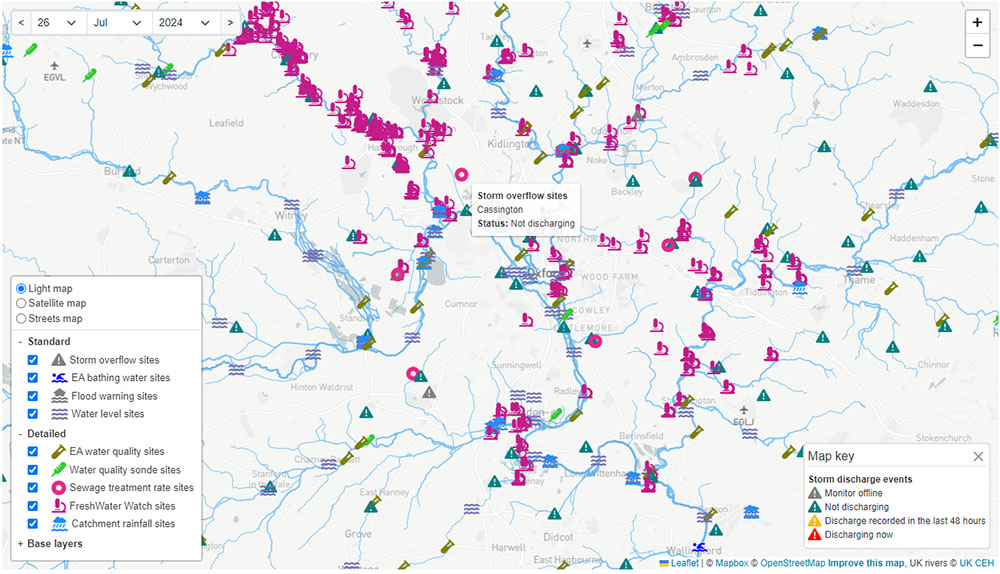With increasing public concern about the state of our rivers, a new portal jointly developed by the UK Centre for Ecology & Hydrology provides a wealth of data and information about water courses in Oxfordshire. Web developer Gemma Nash explains more...
The issue of river pollution is all over the news and has become a very important concern for many people, but it is difficult to get clear up-to-date information about water quality and conditions locally. That is why UKCEH and environmental charity Thames21, working with The Rivers Trust, have developed a one-stop shop for local river information: the Oxford Rivers Portal.
The datasets in the portal, available to view via an interactive map, are:
• Live river levels
• Live sewage spill alerts
• Water quality data from both the Environment Agency and citizen scientists at their respective test sites
• Bacteria levels at Oxfordshire’s two designated bathing waters – in Wolvercote and Wallingford
• Treatment flow data at 17 sewage treatment works
• Flood warnings and alerts
How to view the data
The standard view is ideal for use on a mobile device when visiting the river that enables quick visualisation of the latest readings. The detailed view enables users to look back in time at river water quality and other timeseries near them, tested by both the Environment Agency and citizen scientists.
The data and information will enable users to gather evidence to understand the state of their river and thus stimulate discussions between stakeholders from multidisciplinary backgrounds (e.g., local communities, regulators, water companies) about policies and management relating to rivers and streams. It will also improve collaborations between the portal partners and local people who are working to improve the river health of the Thames in Oxfordshire.

There is also information about local river action groups, reporting pollution and campaigning for change.
The team behind the portal will also be releasing case studies to help people use the data to push for river improvements in and around Oxford, so check back for updates.
Promoting fair and sustainable water use
The development of the portal is part of the European GOVAQUA project which aims to accelerate a transition towards sustainable and equitable water use by better water governance. 'Sustainable' means that water is not overused, and the environment, biodiversity and the climate are protected. 'Equitable' means that the use of water resources is fair and just.
Such a transition is urgently required to reconcile water uses and environmental needs and to reach the aims of the EU Water Framework Directive, the Green Deal and the UN Sustainable Development Goals.
This will foster changes so that freshwater resources (rivers, streams, lakes, groundwater) are used in a greener and fairer way. The project will identify good practices and further co-develop, assess and validate these in six real-world living labs.
Living labs
A key part of the project are six 'Living Labs', each in a different European country, running from August 2023 to July 2026.
The Living Labs are collaborative initiatives where researchers and stakeholders jointly explore, experiment with and evaluate one or more water management innovations in river catchments.
Each Living Lab focuses on different areas. In addition to collaborations, the Oxfordshire Living Lab is exploring digital solutions, including the development of the portal. Other Living Labs are examining legal and regulatory changes or financial models.
Access the online portal at oxfordrivers.ceh.ac.uk
Further information
To find out more or become involved with the Oxfordshire Living Lab, please email Claire Robertson at Thames21.
GOVAQUA (Governance transitions for sustainable and equitable water use in Europe) is a pan-European project, co-funded by the European Union (grant agreement: 101086578) and UKRI (project reference: 10063130).
Follow @GOVAQUAproject on X to find out what the other Living Labs are getting up to.
